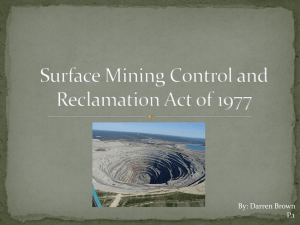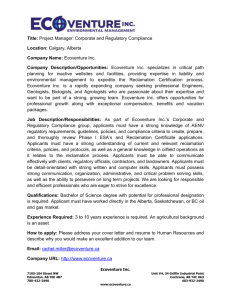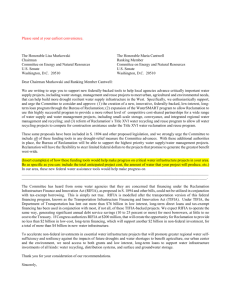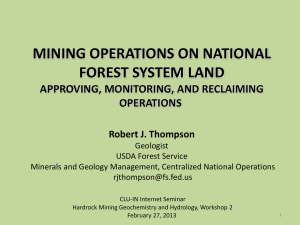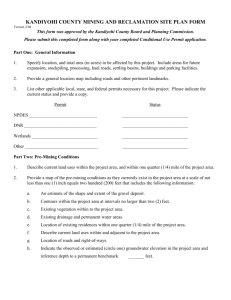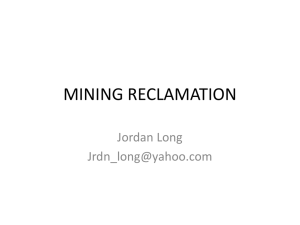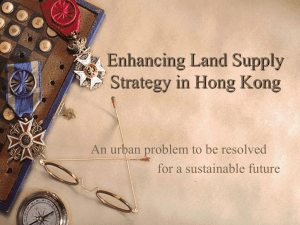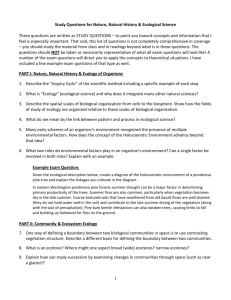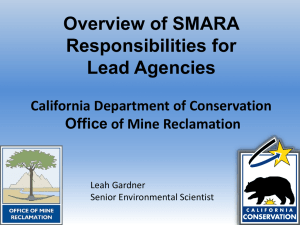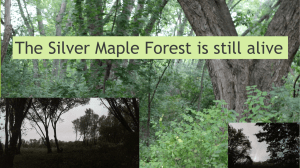Subject name
advertisement
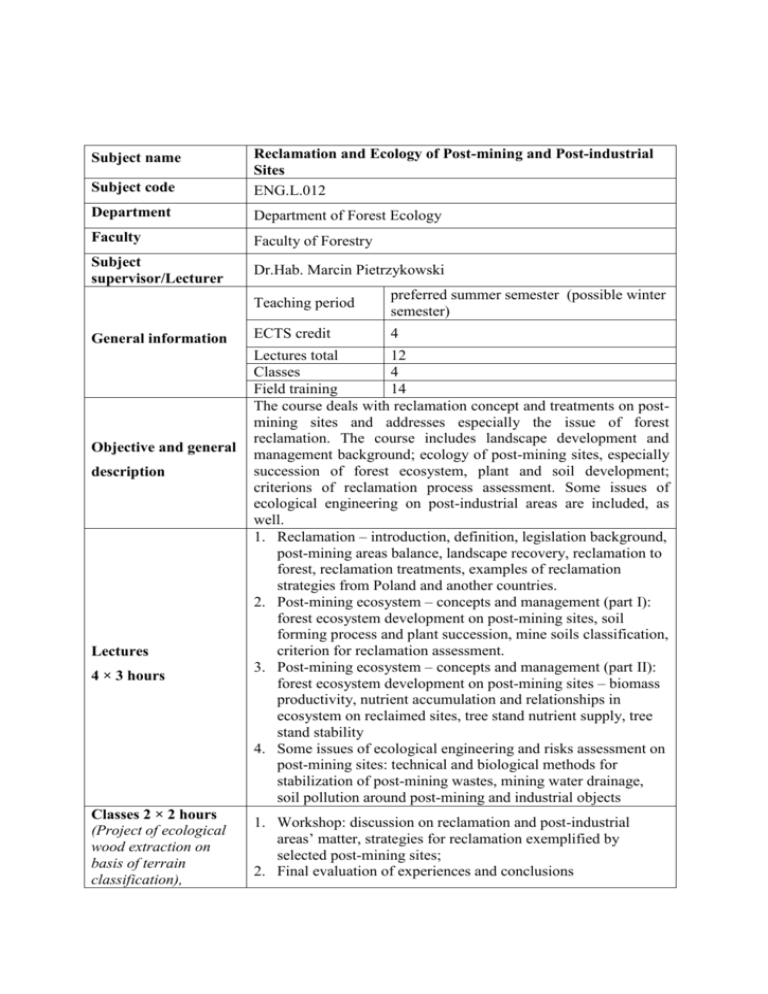
Subject code Reclamation and Ecology of Post-mining and Post-industrial Sites ENG.L.012 Department Department of Forest Ecology Faculty Faculty of Forestry Subject supervisor/Lecturer Dr.Hab. Marcin Pietrzykowski Subject name General information Objective and general description Lectures 4 × 3 hours Classes 2 × 2 hours (Project of ecological wood extraction on basis of terrain classification), Teaching period preferred summer semester (possible winter semester) ECTS credit 4 Lectures total 12 Classes 4 Field training 14 The course deals with reclamation concept and treatments on postmining sites and addresses especially the issue of forest reclamation. The course includes landscape development and management background; ecology of post-mining sites, especially succession of forest ecosystem, plant and soil development; criterions of reclamation process assessment. Some issues of ecological engineering on post-industrial areas are included, as well. 1. Reclamation – introduction, definition, legislation background, post-mining areas balance, landscape recovery, reclamation to forest, reclamation treatments, examples of reclamation strategies from Poland and another countries. 2. Post-mining ecosystem – concepts and management (part I): forest ecosystem development on post-mining sites, soil forming process and plant succession, mine soils classification, criterion for reclamation assessment. 3. Post-mining ecosystem – concepts and management (part II): forest ecosystem development on post-mining sites – biomass productivity, nutrient accumulation and relationships in ecosystem on reclaimed sites, tree stand nutrient supply, tree stand stability 4. Some issues of ecological engineering and risks assessment on post-mining sites: technical and biological methods for stabilization of post-mining wastes, mining water drainage, soil pollution around post-mining and industrial objects 1. Workshop: discussion on reclamation and post-industrial areas’ matter, strategies for reclamation exemplified by selected post-mining sites; 2. Final evaluation of experiences and conclusions Field training Two days (2×7 hours) References Assessment method visit to selected post-mining site reclaimed to forest and postindustrial sites on extremely disturbed forest ecosystem: 1 day - landscape management of mine sites, reclamation treatments, forest management on reclaimed post-mining sites, sustainability development of post-mining sites; practical course on soil-forming process and soil classification of reclaimed mine soils, biodiversity as ecological criterion of reclamation assessment; 2 day - forest ecosystem under Zinc and Lead industry’s impact (characteristic of non-ferrous industry influence in Olkusz region; heavy metal impact on forest ecosystem). Barnhisel R. I., Darmody R. G., Daniels W. L., (ed.). 2000. Reclamation of drastically disturbed lands. Number 41 in the series Agronomy, Madison, Wisconsin USA Publishers Nathanail C. R., Bardos R. P. 2004. Reclamation of contaminated land. John Wiley & Sons Ltd, The Atrium, Southern Gate, Chichester, West Sussex, England Selected scientific papers (supplied by lecturer): Pietrzykowski M. and Krzaklewski W., 2007. Soil organic matter, C and N accumulation during natural succession and reclamation in an opencast sand quarry (southern Poland). Archives of Agronomy and Soil Science, 53 (5): 473 – 483 Pietrzykowski M. and Krzaklewski W., 2007. An assessment of energy efficiency in reclamation to forest. Ecological Engineering 30: 341-348 Pietrzykowski M. 2008. Soil and plant communities’ development and ecological effectiveness of reclamation on a sand mine cast. Journal of Forest Science, 54 (12): 567-578. oral exam
